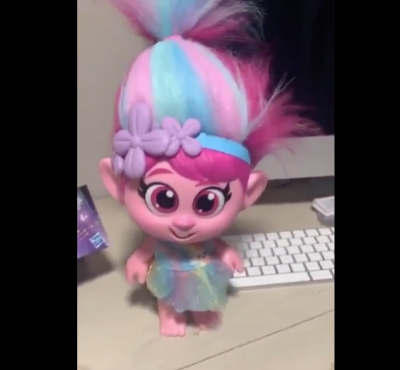Sexual exploitation, advocacy groups on controversial Trolls doll: 'Not an accident'

As the controversial Giggle and Sing Trolls doll is removed from shelves due to complaints of sexualization, the head of a conservative advocacy group doesn’t believe it was a simple mistake.
“This is not an accident as Hasbro says,” Tim Winter, president of the Parents Television Council told The Christian Post. “This is not just a ‘oops, somebody made a mistake.’ This is something that we believe is by design.”
After a petition was launched against the Poppy doll featuring a button under its skirt that makes gasping and giggling sounds, Hasbro announced last week that it’s pulling the toy from retailers. The game company said it was “not intentional” and that the doll was meant to react when seated.
Unconvinced, Winter said the entertainment culture continues to push boundaries, calling it the “proverbial frog in the boiling water.”
“Things move slowly and the boundaries … go wider. And I think that’s what we’re seeing here. I don’t know if it is an attempt to normalize this kind of conduct but I do believe there are some in Hollywood that are all too happy to see children portrayed in a sexual light.”
Winter said that sexualization has become more prominent among children and the age in which they are sexualized has decreased in the last decade. This is in part because households have evolved from a single television home to one with multiple devices that children can use without their parents knowing.
Jake Roberson of The National Center on Sexual Exploitation argued that companies should have experts on staff, given that “sexual predators already use toys for child sexual abuse, grooming purposes and enticement.”
“It should have been caught pretty early on within a company to say, ‘Hey, we can’t put this type of button with these types of reactions on the genitals of a dolls,” Roberson told CP.
“We recognize that poor design decisions can occur in ignorance but we think it’s irresponsible of those who make products for children to not have experts and processes in place to catch highly problematic designs like this early on.”
While applauding the decision to remove the toy from the market, Roberson stressed the importance of raising awareness moving forward.





























